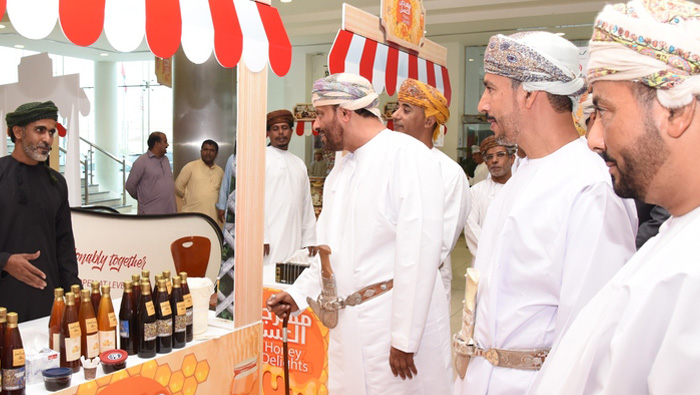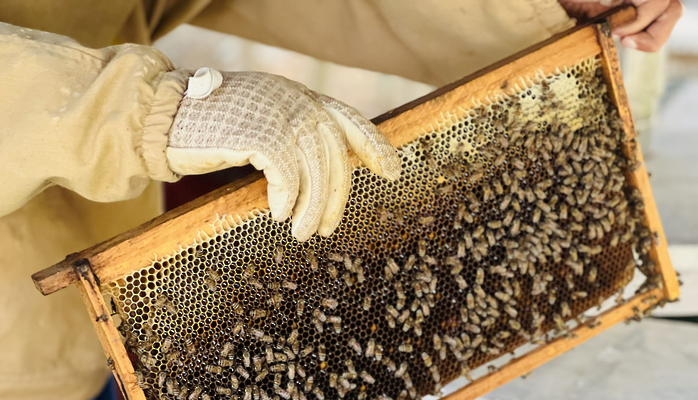

Muscat: The production of Samar honey in the Wilayat of Mahdha in Al Buraimi Governorate for the year 2024 amounted to more than 5 tonnes.
The number of beekeepers in the Wilayat of Mahdha, according to statistics from the General Directorate of Agriculture and Water Resources reached 45 and included 2,985 beehives.
Engineer Mohammed bin Salem bin Obaid Al Kaabi, Director of the Department of Agriculture and Water Resources in the Wilayat of Mahdha in Al Buraimi Governorate, said that the profession of honey beekeeping is considered one of the ancient Omani professions, and one of the main sources of income for many families in Al Buraimi Governorate that work in this field. It contributes to supporting the national economy by meeting the local market’s need for Omani honey and exporting the surplus outside the Sultanate of Oman.
Al Kaabi added that the wilayats of Al Buraimi Governorate were affected during the recent period by large amounts of rain, which affected the vegetation cover in a number of aspects, which contributed to the delay in honey harvesting this year compared to the usual time for each year.
Al Kaabi explained that there are two types of honey bees in the Wilayat of Mahdha, the first type is known locally as “Abu Twaiq,” which inhabits mountain caves. This type of bee is characterised by its high quality, which is why its price is high due to the low hive production on the one hand, and the small number of hives of this type on the other hand. The second type is known as “Mustanas” bees, which are small in size and yellow in color, and are raised using modern methods inside wooden hives. This type of bee is characterised by the fact that it does not tend to be aggressive, has high production, is resistant to most pests and diseases, is highly efficient in collecting and storing nectar and pollen, and is resistant to weather conditions, especially high temperatures.
Al Kaabi pointed out that the Department of Agriculture and Water Resources in the Wilayat of Mahdha provides all the necessary support to beekeepers by providing technical support, in addition to providing the tools and means that beekeepers need to raise and propagate bees. In addition to implementing many awareness programmes, seminars and lectures for beekeepers on the correct methods of raising and propagating Omani bees, and publishing guidebooks that introduce healthy methods of beekeeping.